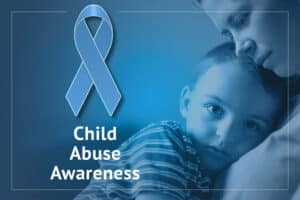What is domestic abuse, and how do I recognize it?
Domestic abuse is a pattern of behavior designed to gain power and control over another person.
Some abusive relationships follow a predictable pattern or cycle of violence. Over time, the cycle tends to tighten – the honeymoon stage shortens and the abuse during confrontation escalates.
It is helpful to remember that:
- Domestic violence is a crime, and it is unacceptable
- Domestic violence is very common. 1 in 4 women will experience domestic abuse at some point in their life. The highest age group to experience abuse is 18-24 years old.
- Domestic violence is very dangerous.
- The abuser is solely responsible for his or her abusive behavior. The victim is not to blame; violence is a choice the abuser makes.
- Most abusers are in full control of themselves, their actions and their choices. While illnesses and substance use may be linked to domestic violence, most abusers are fully aware of their behavior and the intent behind it. Even while intoxicated, individuals still hold onto their fundamental value systems.
Warning signs, or red flags, are important to pay attention to. Here are some common warning signs of an abusive relationship:
- Extreme jealousy or insecurity
- Checking your cell phone, text messages, emails or Facebook without your permission
- Asking several questions about where you were, and who you were with
- Frequent put-downs, name calling, and belittling
- Explosive temper
- Isolating you from your family and friends, or accusing you of loving them more than your partner
- Possessive and controlling behaviors, attitudes or language
- Persistent negativity towards others, especially past partners
- False accusations and judgments towards you or your point of view
Here are some common signs of a healthy relationship:
- Both partners are treated with respect
- Both partners listen to each other
- Both partners feel safe and protected in their relationship
- Both partners can freely express what they think and feel
- Both partners can make their own decision about their body, property, opinion and privacy
- Both partners can freely make decision regarding their sexual activity
- Neither partner displays blame or accusations
- Neither partner displays criticism or judgment
- Neither partner displays angry outbursts
- Both partners have the responsibility to communicate openly
- Both partners have the responsibility to be honest
- Both partners share the responsibility to be fair
The Power and Control Wheel can help you identify other forms of abuse:
Someone is being abused, what can I do?
- Call 911 if someone is immediate danger! Our local law enforcement are skilled and trained to work with victims and offenders. Making this call can sometimes mean life or death.
- Pick up information about local services, and give it to the victim discreetly. Fond du Lac has many options for accessing crisis lines, walk-in services, shelter, therapy, support groups and counseling. There is a service that will meet every victim’s needs.
- WARNING**Information can also put the victim in more danger, do not be offended or discouraged if the victim refuses to take it.
- Don’t pressure them! A victim may need time to consider their relationship, their safety, and many other complex factors. Tell the victim that you care about them, want them to be safe and happy, and that you will be there for them if they ever need you. The first step towards ending an abusive relationship can be a very empowering time for a victim – it’s important for them to make that decision on their own.
- Don’t judge the victim or criticize them for staying in the relationship.
- Reassure the victim that the abuse is not their fault.
- Listen and believe what the victim tells you. Often victims are not believed and they are discouraged from disclosing the truth about their relationships.
- Safety plan – help them prepare to leave, even if they aren’t ready to yet.
- Gather important documents (social security cards, birth certificates, bank account numbers, etc.), favorite toys/blankets of children, extra clothing and shoes, medication, etc. and store it somewhere safe and discreet.
- Help the victim plan their exits. Is there a safe way out of every room in the house? If they get backed into a corner or a closed room, how can they escape?
- Do they have a trusted friend or family member to call who will be there for them anytime day or night?
- Do they have access to a phone and car keys? Can they hide a phone in the house if they need to call 911?
- Have a code word or phrase that means they need help if they can make a phone call.
What do I say to a victim or survivor of domestic abuse?
You’ve done an amazing thing: you’ve intervened when someone was being abused. Now what do you say? Here are some phrases to use if you’re not sure how to tell this person you care:
- “I care about you.”
- “You are not alone.”
- “I want you to be safe and happy.”
- “Thank you for sharing your story with me.”
- “It takes a lot of courage to leave a relationship, you should be proud of yourself.”
- “I’ll be here for you whenever you need it.”
- “I support your decisions, just know I’ll always be here for you.”
- “If you need someone, I’m here for you.”
- “Would you like me to take you to talk to an advocate?”
- “The abuse is NOT your fault.”
- “You are not responsible for your abuser’s behavior.”
- “Your safety is my business, I care about you and don’t want you to be hurt.”
- “I’m worried about your safety and I’m afraid s/he’ll really hurt you next time.”
- “Let’s develop a safety plan.”
Remember, victims often still love their partner (or the idea of who their partner used to be), so it is important not to put the abuser down. This can often times push the victim away from you as they feel they need to protect their partner.
Victims may also make excuses for their partner. It’s important to support the victim, and accept that the excuses may be their impression of their abuser, but that the actions of the abuse have different intentions (ie. power and control over the victim).
“YOUR ABUSIVE PARTNER DOESN’T HAVE A PROBLEM WITH HIS ANGER; HE HAS A PROBLEM WITH YOUR ANGER. One of the basic human rights he takes away from you is the right to be angry with him. No matter how badly he treats you, he believes that your voice shouldn’t rise and your blood shouldn’t boil. The privilege of rage is reserved for him alone. When your anger does jump out of you—as will happen to any abused woman from time to time—he is likely to try to jam it back down your throat as quickly as he can. Then he uses your anger against you to prove what an irrational person you are. Abuse can make you feel straitjacketed. You may develop physical or emotional reactions to swallowing your anger, such as depression, nightmares, emotional numbing, or eating and sleeping problems, which your partner may use as an excuse to belittle you further or make you feel crazy.”
“One of the obstacles to recognizing chronic mistreatment in relationships is that most abusive [partners] simply don’t seem like abusers. They have many good qualities, including times of kindness, warmth, and humor, especially in the early period of a relationship. An abuser’s friends may think the world of him. He may have a successful work life and have no problems with drugs or alcohol. He may simply not fit anyone’s image of a cruel or intimidating person. So when a woman feels her relationship spinning out of control, it is unlikely to occur to her that her partner is an abuser.”
― Lundy Bancroft, Why Does He Do That?: Inside the Minds of Angry and Controlling Men
Planting Seeds of Safety: Prevention Education During Child Abuse Prevention Month
Every child deserves to grow up in a safe, nurturing environment where they can learn, play, and thrive. But for too many children, abuse and…
Guys Who Grill
This Event Has Ended 2025 Event Pictures 2024 Event Pictures Sponsor the EventRegister Your Team$ Buy Tickets Online Guys Who Grill Event Details Local teams…
Join Our Board
Join Our Board: Make a Difference in the Lives of Those in Need Solutions Center Shelter & Support Services in Fond du Lac is seeking…




